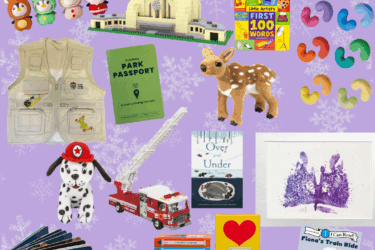There are many ways that moms and dads can support their kids’ academics at home, but also areas outside of academics. In other words, supporting your child as a whole.
Your Kids’ Whole Success
Research shows that success is measured in more than just academics or your Intelligence Quotient (IQ). Your Emotional Quotient (EQ) also plays a factor in your success. This research has led to the push to support the whole child versus just academics. In fact, the state of Ohio created a Whole Child Framework stating, “Unless the whole child is considered and supported, the conditions for learning are less than optimal.” The Department of Education also recognizes the importance of the whole child and created Social Emotional Learning Standards. These standards were built following the CASEL model on social emotional learning that includes self-awareness, self-management, social awareness, relationship skills and responsible decision making.
SOCIALIZING AN ELEMENTARY CHILD
Extra-curricular activities provide a great way to socialize your child. They provide kids with an opportunity to work with others, follow directions from a coach, (with sports, for instance), problem solve when necessary and cope with loss.
• After-School Interests: Continue to follow your kids’ lead. Many high schools and local places such as West Chester Academy offer camps to try out different activities and sports. Also ask the parents of your kids’ peers what their kids are doing. Your child may enjoy trying out an activity with a friend.
• Supporting Success in School: Keep an open line of communication with your child’s teacher. King recommends doing activities such as cooking/baking with parents, sorting clothes, playing board games, etc. All of these activities at home can help build skills they can use at school. Another way to support your child is to check their grades together. If your child has an issue with an assignment or a question about an assignment, have them help you reach out to their teacher. You can initiate and model the contact, but let them be a part of it.
• Building and Maintaining Relationships: Build kids’ emotional skills and understand that sometimes kids have to feel their feelings for a bit and experience the discomfort, according to Russell.
“As parents, we want to fix everything and not watch our child go through this pain,” she continues.
Allowing your child to feel some of the discomfort will help them learn to process emotions that they may face in their relation- ships with peers.
SOCIALIZING OLDER KIDS
As your big kids prepare for their first job, you can review the important skills they will need to be successful at that job. You can begin by helping them practice these skills at home. Sports or other extracurricular activities are a great way for your kid to continue to build the social skills they will need post high school.
• After-School Interests: Kids are never too old to try something new! If your kid decides that they want to give a new sport or activity a try, sign them up.
• Supporting Success in School: Keep an open line of communication with your child and support them in navigating their education. Set up a time each week to sit down together and check their grades. If they have a question or concern, support them as they reach out to their teacher to ask their questions. Give your child the responsibility of contacting their teacher with your support so by the time they are off to post secondary school or work, they are confident to do it on their own.
• Building and Maintaining Relationships: The skills that your child is working on at this age are preparing them for their next step of entering the workforce or going to college. Before stepping in to solve or fix their relationship problems, push pause and ask yourself, “How can I provide support without taking over the situation?”
Keep in mind that every child reaches mile-stones at different rates and that includes skills in these areas. Continue to communicate with your child regardless of their age and ask them how you can support them – this just models maintaining a healthy relationship!
Resources:
Ohio’s Whole Child Framework; bit.ly/3QRxP42
Ohio Department of Education SEL Standards; bit.ly/3Ppdp1m





